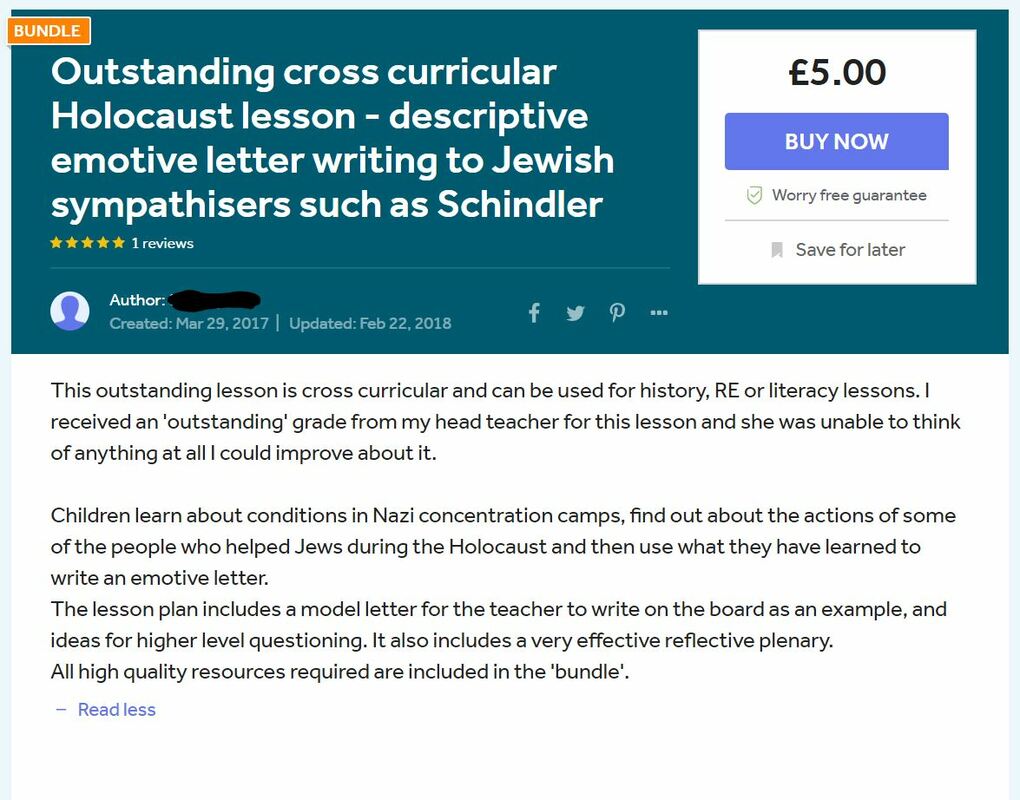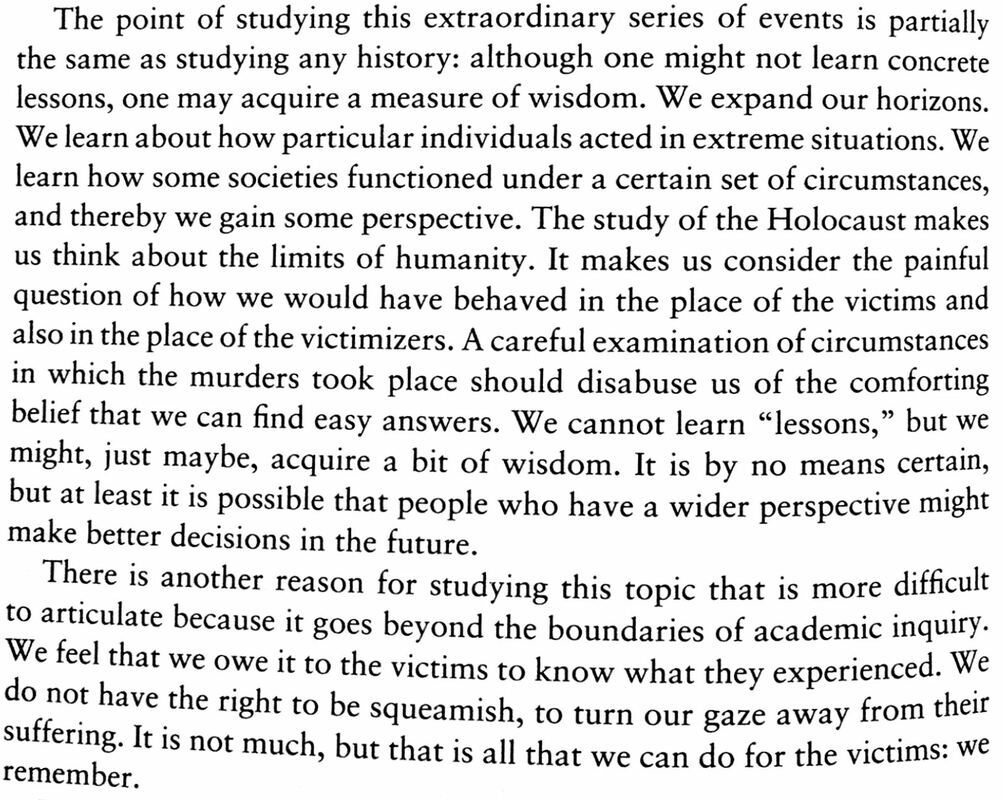The letter from Auschwitz
I have seen this type of lesson in all kinds of guises, but this is probably the version I have most issue with. The task itself if fairly straight forward: having learned about the Holocaust and concentration camps, students are asked to imagine they are in a concentration camp and to write about their experiences in some kind of letter or diary.
I completely understand where lessons like this come from. The letter/diary device is straightforward to students to access (they may even be familiar with Anne Frank’s diary), and on the surface it appears to give them a chance to really empathise with people in the past. In reality however, I fear it undermines this latter aim, and raises a host of other issues. For more on this, you may like to read Totten’s “Holocaust Education: Issues and Approaches”, especially chapter seven.
First, because of the placement of tasks such as these, they often end up being a stand-in for a factual recall, rather than a real...
Primo Levi once noted that the question he found most difficult when visiting schools was the one where students asked why he did not escape; or those who simply explained how they would have escaped in similar circumstances. Such questions and comment come from a lack of understanding of the realities which prisoners of the Nazi regime faced. Imagination based tasks do almost nothing to break this misconception down, and indeed allow it to persist and be reinforced. This for me epitomises the major issue with this type of lesson: we essentially ask students to “imagine” an Auschwitz experience whilst ignoring the wealth of testimony we have access to. Nobody really needs to fictionalise an account of experiencing Auschwitz as even a cursory glance through sites such as http://holocaustlearning.org/ will reveal a wealth of written and oral testimonies. Engaging with these remnants of the past is surely the main job of the historian, and in turn leads to the kind of emotive connections “imagination-type” tasks try to force. Peter Kenez notes a similar point in his “The Coming of the Holocaust” (2013). The key difference of course is that the emotional connection forged is that of an historian with the real people of the past, rather than that of an author with his or her creations.
To be honest though, I would be tempted to rethink an approach to Holoaust teaching altogether, for which UCL’s Centre for Holocaust Education is an absolutely fantastic resource.
https://www.holocausteducation.org.uk/lessons/additional/human/
Anyone interested in finding out more should definitely read this Move Me On: https://www.history.org.uk/secondary/resource/4077/teaching-the-holocaust and the New Novice or Nervous page on teaching controversial issues here: https://www.history.org.uk/secondary/categories/607/resource/9179/new-novice-or-nervous-controversial-issues
Next time…
In my final blog I am to look at one of the most problematic lessons I have witnessed: the slave auction lesson. In the meantime, I would be very interested in your thoughts on the use of “imagination activities” with relation to the Holocaust.



 RSS Feed
RSS Feed
